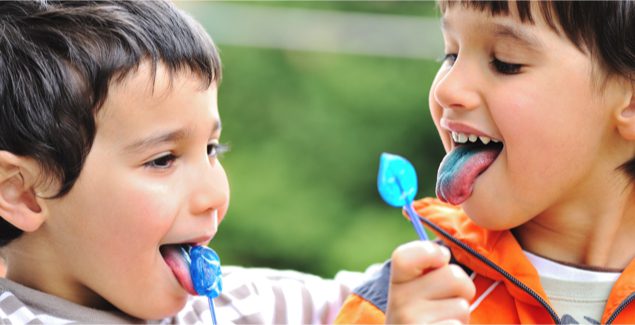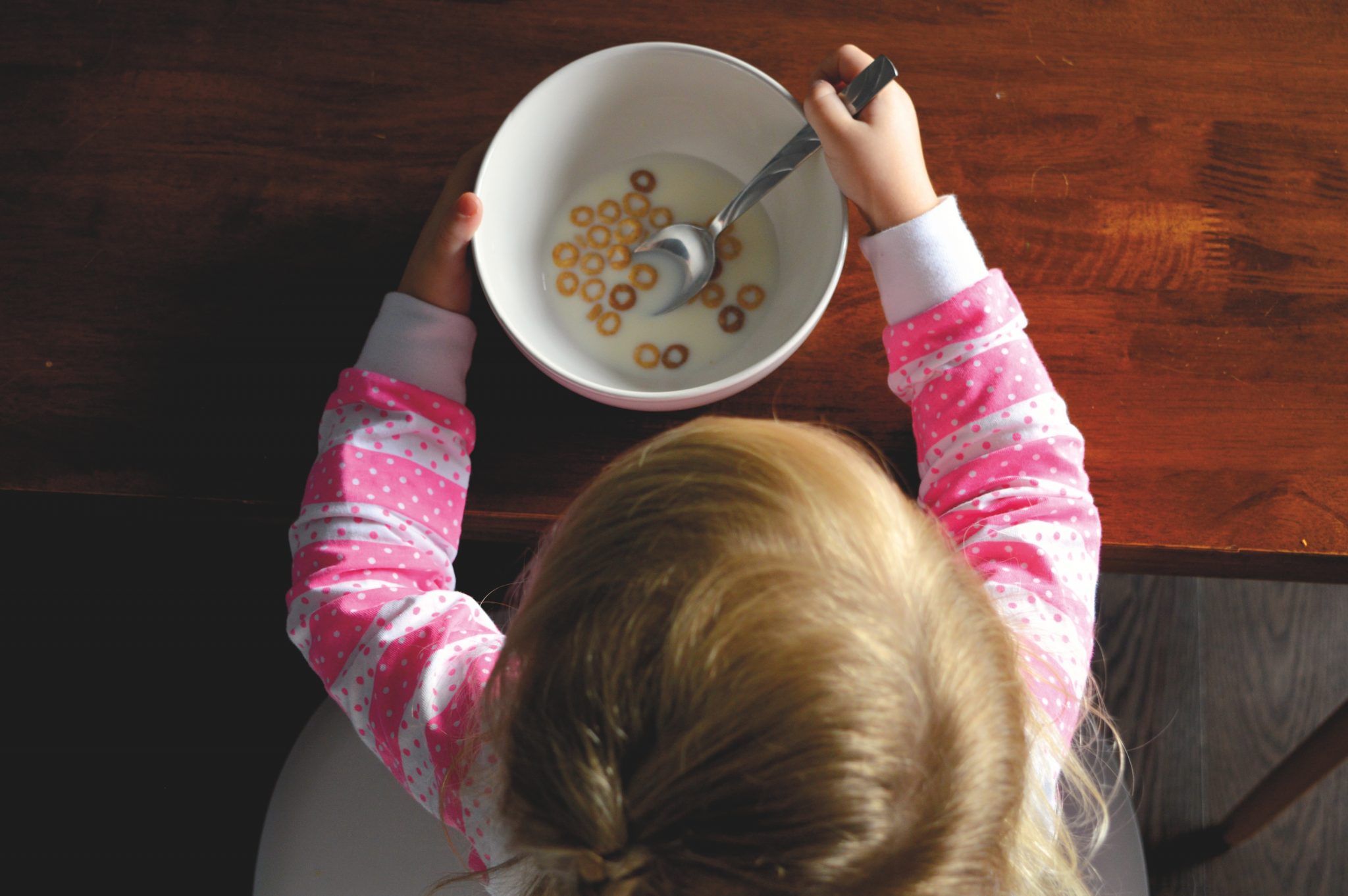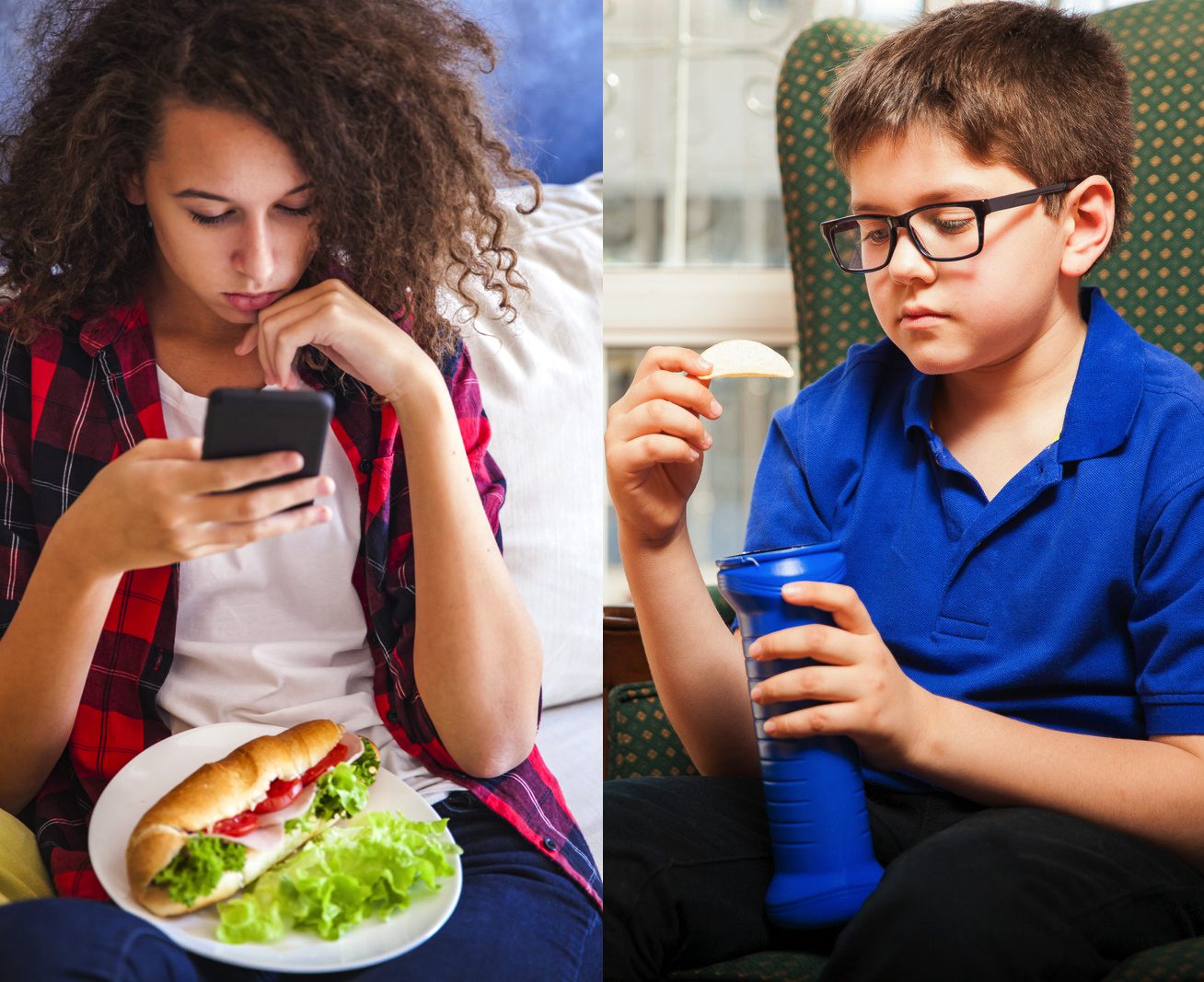Food and Behavior – It’s Complicated

Posted in: Grade School, Hot Topics, Teenagers
Topics: Behavioral Issues, Healthy Living
In the days leading up to Halloween or Christmas or Valentine’s Day, teachers and parents often wring their hands. Kids seem rambunctious and gleefully hyperactive. The amount of sugar these kids consume is remarkable. The combination of how they seem to behave and the different kinds of things they eat during these festive days leads adults to shake their heads and to draw specific conclusions.
“All that candy,” they say. “All that sugar. No wonder they’re so out of control.”
And you know what? This is somewhere between a ½ and 100 percent accurate. Kids are almost always hyperactive and more inattentive during these days. This is especially the case for younger kids, but most teens also get a bit giddy as celebrations draw near. But is it the sugar? Maybe. Maybe not.
Is It the Sugar? Maybe, and Maybe Not
Think of how kids feel around the holidays even in the absence of the sweet stuff they consume. Run the experiment in your head. Is there anything else that might account for the hyperactivity and inattention? Could it be, maybe, that they can’t stop thinking about trick-or-treating, or opening presents, or getting Valentine’s cards? These kinds of distractions are much more likely to provoke symptoms of ADHD even in kids who don’t have ADHD. Heck, these distractions provoke the same behaviors in adults both with and without ADHD.
And still, studies continue to show that for a small percentage of children, sugars, food additives, dyes, high carbohydrate diets, and even certain fruits and vegetables can reliably create behavioral changes.
Parents and teachers who think that certain foods with lots of sugars provoke hyperactivity and inattention might be correct in drawing these conclusions. But more often, at least according to multiple studies, there are better ways to explain the behavioral disruptions. Excitement because of an upcoming holiday, even excitement over the perceived permission to eat food that would normally be limited or prohibited, is a much more reliable promoter of hyperactivity and mayhem. In fact, some have even suggested that when we adults tell kids that they’re going to be “hyper from all that sugar,” we might be contributing to or even creating the problem.
Where does this leave us? Are there foods or dietary supplements that disrupt kids’ behaviors? Are there some that help?
Any attempt to make recommendations about what foods or additives a child ought to eat in order to decrease psychiatric symptoms is incredibly complicated. Past trends like the popularity of Feingold Diet in the 1970’s led to large scale adoption of very cumbersome dietary practices that were later discounted by carefully constructed studies. That said, there are almost certainly some kids who did and still do better on that particular diet.
As we’re fond of saying at the Clay Center, parents know their kids best. There will without question be kids who become a bit hyper with too much sugar, or in the presence or absence of other certain foods. And parents will usually recognize this early on in their child’s development.
Just because large studies haven’t really consistently shown an effect of these foods, we can’t conclude that some folks in these studies aren’t affected. Remember that these studies look for statistical comparisons between kids exposed to the suspected food and kids who are not. These differences don’t comment on individual effects.
In other words, if a study says that there is no statistical difference between two groups – in this case, a big enough difference to confidently show that a specific food is causing the behavior as opposed to something else – that’s not the same thing as saying that there aren’t people in those groups who do show effects. We just can’t make large-scale recommendations. To do so would be to relegate those kids who are not affected by sugars, for example, to a less sweetened and potentially less fun Halloween.
How Should Parents Think About Diet?
Again, parents know their kids best. But to be sure, there are some things we can say with certainty:
- Caffeine. Consuming too much caffeine, and possibly any amount of energy drinks, is likely to make behavior worse. For kids who are already on stimulants for ADHD, the added stimulation of caffeine and related substances can make it difficult to gauge treatment effectiveness. For everyone, even those with ADHD, there’s a point where too much caffeine creates agitation and anxiety.
- Omega 3s. On the other hand, omega 3 fatty acids (such as fish oils) continue to show efficacy and are worth a try for kids or parents who haven’t responded to or are averse to taking medications for ADHD, anxiety, and depression.
- Changing Literature. Finally, the literature is constantly changing. For example, a recent article published in Medical News Today summarized new research in mice that shows that some food additives affect gut bacteria in ways that affect behavior – certain metabolites of these bacteria worsened anxiety. The study of the relationship between our gut bacteria and behavior is exciting and will continue to yield important pieces to this amazingly complex puzzle.
For now, borrow a page from Aristotle. Everything in moderation:
- Six pounds of candy at Halloween isn’t a great idea, but a ½ pound or so will probably be OK.
- If your child really seems very different with even a little sugar, or with the addition or withdrawal of an additive, dye, or certain foods, then look into it.
- Talk about diet with your pediatrician before you make big changes. This will help you to make the most informed decision possible. It may also bring to light not-yet diagnosed mental health concerns that require attention whether you change the diet or not.
Plus, I’d hate to deprive folks of the occasional favorite candy bar without an awfully good reason.

 Share
Share Tweet
Tweet





